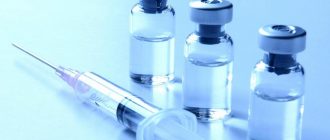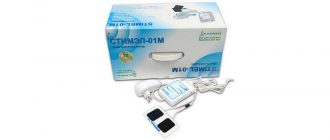Abacterial prostatitis (sometimes called chronic pelvic pain syndrome) is an inflammation of the prostate gland that occurs or develops in the absence of infection. The exact causes of its appearance have not been established, but predisposing and associated factors have been identified. Diagnosis is made by excluding diseases with a similar clinical picture. Due to hidden causes, treatment is most often carried out to eliminate signs and symptoms. For this purpose, not only medications are used, but also physiotherapeutic procedures.
Causes of occurrence and difference from bacterial
Reliable causes of the pathology have not yet been identified. Most researchers believe that chronic abacterial prostatitis occurs after infection enters the prostate gland or organs and tissues close to it. Further, in combination with other factors or in the presence of injuries, pathological changes occur in the functioning of the prostate gland itself, which are not eliminated on their own and are maintained due to autoimmune processes, regardless of infection.
Secondary causes of non-bacterial prostatitis can be disturbances in the outflow of urine, stagnation of prostatic secretions, disturbances in blood flow in the pelvis, deformations of muscle tissue, neuroses, and hormonal disorders.
Predisposing factors for the occurrence of pathology include:
- Dysfunctions in the immune system.
- Sedentary lifestyle.
- Poor nutrition.
- Drinking alcoholic beverages.
- Use of tobacco products.
- Violation of the rhythm of sexual intercourse.
- Stress and constant emotional stress.
- Genetic predisposition.
- Injury to tissues and pelvic organs.
Bacterial prostatitis differs from non-bacterial prostatitis in a more uniform manifestation of symptoms. With abacterial disease, the clinical picture can be recurrent and wave-like - negative signs can alternately appear and fade, which complicates diagnosis.
Symptoms
Clinical manifestations have no characteristic signs and are common to prostate dysfunction. The following symptoms of abacterial prostatitis are possible:
- pain in the pelvic area, perineum, which can be felt as lumbar or rectal;
- urination disorders, frequent urge, small amount of discharge, pain during the process;
- painful sensations during erection, during sexual intercourse or during ejaculation;
- erectile dysfunction;
- general weakness, mood swings, depressive symptoms.
Diagnostics
Exact criteria for making a diagnosis have not yet been identified, so examinations are carried out to exclude other pathologies with similar manifestations - bacterial prostatitis, adenoma and prostate cancer.
The following examinations are prescribed:
- General blood and urine tests.
- Three-glass urine sample.
- microscopic examination and bacterial culture of prostate secretion (to exclude bacterial origin of inflammation).
- Palpation of the prostate gland, ultrasound, CT or MRI (depending on the available equipment, palpation and ultrasound are not informative enough).
- Bacterial smear of the urethra.
- Uroflowmetry (analysis of urine outflow).
- Prostate biopsy (to exclude tumor diseases - adenoma and cancer).
Treatment
Due to insufficient knowledge of the pathology, treatment methods for the abacterial form of chronic prostatitis are usually aimed at alleviating the course of the disease and relieving symptoms.
The treatment regimen for acute chronic abacterial prostatitis involves an integrated approach - taking various prescribed drugs and physiotherapeutic procedures.
Medication
Drug treatment of abacterial prostatitis is carried out in several directions - relieving the inflammatory process, improving the functioning of the immune system, improving blood flow, and normalizing hormonal levels. The following drugs are prescribed for abacterial prostatitis:
- non-steroidal anti-inflammatory drugs (these are the main treatment, the following drugs are auxiliary, to eliminate the causes of the pathology). Usually prescribed in the form of rectal suppositories (suppositories);
- anticoagulants and drugs to improve blood circulation, antispasmodics;
- alpha-1 adrenergic blockers;
- 5-alpha reductase inhibitors;
- muscle relaxants;
- immunomodulators (not always prescribed and show little effectiveness);
- hormonal drugs.
Antibiotics for non-bacterial prostatitis can be prescribed only if the gland is concomitantly affected by infection, which does not always occur.
Physiotherapy
In case of non-bacterial origin of inflammation of the prostate gland, physiotherapy in some cases can show higher effectiveness than medications. Their main effect is aimed at improving blood flow, eliminating congestion and improving the sensitivity of tissues to medications.
Most often used:
- Galvanization is direct current stimulation of small amounts of force on muscle tissue.
- Electrophoresis - allows you to direct the action of the drug directly to the desired organ or tissue.
- Pulsed current electrical stimulation improves tissue penetration.
- Magnetotherapy.
- Ultrasound therapy with low-frequency waves helps eliminate congestion.
- Ultraphonophoresis is the simultaneous use of ultrasound and medications.
- Microclysters with various compositions (prescribed depending on the symptoms).
- Rectal massage of the prostate gland.
Prevention
As preventive measures it is recommended:
- regular sexual intercourse with a regular partner;
- maintaining an active lifestyle;
- rejection of bad habits;
- normalization of nutrition;
- regular examinations by a urologist, especially after 40 years.



